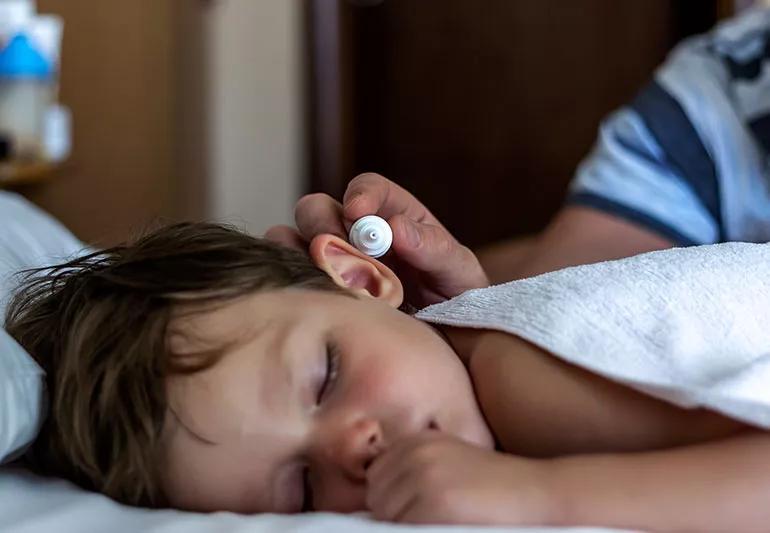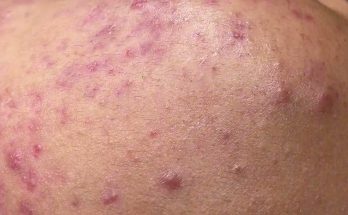Earwax Removal 101: The Best (and Safest) Ways to Clear Clogged Ears
And two remedies to avoid at all costs
Trouble hearing? Or did you push that cotton swab a little too deep this time? A clogged ear from earwax buildup is at best annoying and at worst a prelude to hearing loss.
But earwax, also known as cerumen, is not only normal, it’s necessary.
“People think that earwax is dirty and needs to be cleaned, but earwax has both anti-fungal and anti-bacterial properties,” says ear, nose and throat specialist Anh Nguyen-Huynh, MD. “It also protects ears from things that could hurt the eardrum, such as dust, hair or small insects.”
Factors that can affect your amount of earwax include previous ear surgery or trauma, recurrent ear infections, or wearing hearing aids or deep earplugs.
How to remove earwax safely
So how can you best handle earwax woes?
“Sometimes, trying to clean them causes more problems than it’s worth,” says Dr. Nguyen-Huynh. “Ears are like self-cleaning ovens. When the outer layer of skin in the ear canal sheds, the wax will fall out with it.”
If earwax is becoming a nuisance, Dr. Nguyen-Huynh recommends several easy ear cleaning methods:
Over-the-counter ear cleaning drops
If you have a small amount of wax, over-the-counter ear cleaners work well. Look for drops that contain hydrogen peroxide or other kinds of peroxide. The peroxide does a good job of breaking up earwax.
Here’s how to use ear cleaning drops:
- Lay sideways: Make sure the ear you’re cleaning faces up and add the drops as directed.
- Let it sit: Allow the cleaning solution to sit in your ear for around five minutes. This lets the liquid soak in and soften things up.
- Grab a tissue: When you sit up, the liquid should come out along with the earwax that broke loose. Have a tissue ready to catch it all.
Ear cleaning drops may not work if you have too much earwax or a condition called impacted cerumen (when there’s a firm wax plug blocking your ear canal).
“When it’s a plug, putting peroxide in your ear may make things worse because you’re softening the plug but not dissolving or removing it,” Dr. Nguyen-Huynh says. “Then the softened plug becomes like a wall of mud that can plug your ear even more.”
A bulb syringe
If ear cleaning drops don’t work, the ears might need flushing with a bulb syringe, which are available at drug stores or grocery stores. You’ll want to fill the syringe with warm water, place it near your ear opening, and carefully squeeze the bulb. The warm water will flood your ear and break up the wax. Turn your head to the side over a sink or bathtub to let the water (and, ideally, wax) flow out.
However, there are a few caveats:
- Be gentle: Flush your ear gently to avoid harming your eardrum.
- Watch the temperature: The water should not be too cold or too hot. If it is either, the temperature difference could make you dizzy.
- Avoid if necessary: Don’t use the flushing method if you have a hole in your eardrum or if you’ve ever had eardrum surgery. Flushing may damage your eardrum repair.
If you are not comfortable flushing your own ears, says Dr. Nguyen-Huynh, you might want to check with your primary care provider’s office to see if there is a nurse who can do it for you.
Mineral or olive oil
Anecdotally, Dr. Nguyen-Huynh says people who put olive oil in an ear before getting a cleaning seem to get wax out more easily. “It lubricates the ear canal,” he explains. “But I’m not sure it’s any better than what we usually recommend, which is mineral oil.”
Earwax removal methods to avoid
All earwax removal hacks are not created equal. Dr. Nguyen-Huynh recommends steering clear of these two remedies:
Cotton swabs
A manufacturer’s warning on the package says it all: Do not insert swab into the ear canal. Dr. Nguyen-Huynh explains: “A cotton swab acts like a ramrod in an old-style cannon. The tip pushes the earwax in deeper, so the more you use it, the more earwax you push in. Plus, you may rupture your eardrum if you push too far. Or if you scratch your ear canal, it can get infected because now dirt and bacteria can penetrate under your skin.”
Earwax removal candles
Dr. Nguyen-Huynh says you should doubly stay away from this method: These candles don’t work, and they may burn you.
Why and when you should clean out earwax
While earwax is generally more annoying than dangerous, sometimes you need a doctor to clear it. Dr. Nguyen-Huynh says it’s smart to seek medical evaluation if home remedies don’t work, your ear hurts or you have trouble hearing.
“Someone needs to look in and see if the ear canal is open or if the wax is plugging it up,” he says.
Symptoms of a clogged ear include:
- Pain
- Your hearing becomes muffled
- A feeling like your ear has something blocking it
- Dizziness
- Tinnitus
If the situation is minor, you may be able to get your ears unblocked right then and there. If not, a doctor can use operating microscopes to magnify inside the ear canal, loosen the wax and vacuum it out.
And a clogged ear may have other causes. “It could be a middle ear infection with fluid filling up the space behind the eardrum,” Dr. Nguyen-Huynh cautions. “Or you could have a viral infection that affects the inner ear. In those cases, a doctor can diagnose and treat you to prevent permanent hearing loss.”
But like most things in life, it’s all about balance — too much wax can block your ears and cause temporary hearing loss or infections. “A small number of people will need cleaning if they produce too much wax that jams up the ear, especially if they have a smaller-than-average ear canal,” Dr. Nguyen-Huynh explains.



